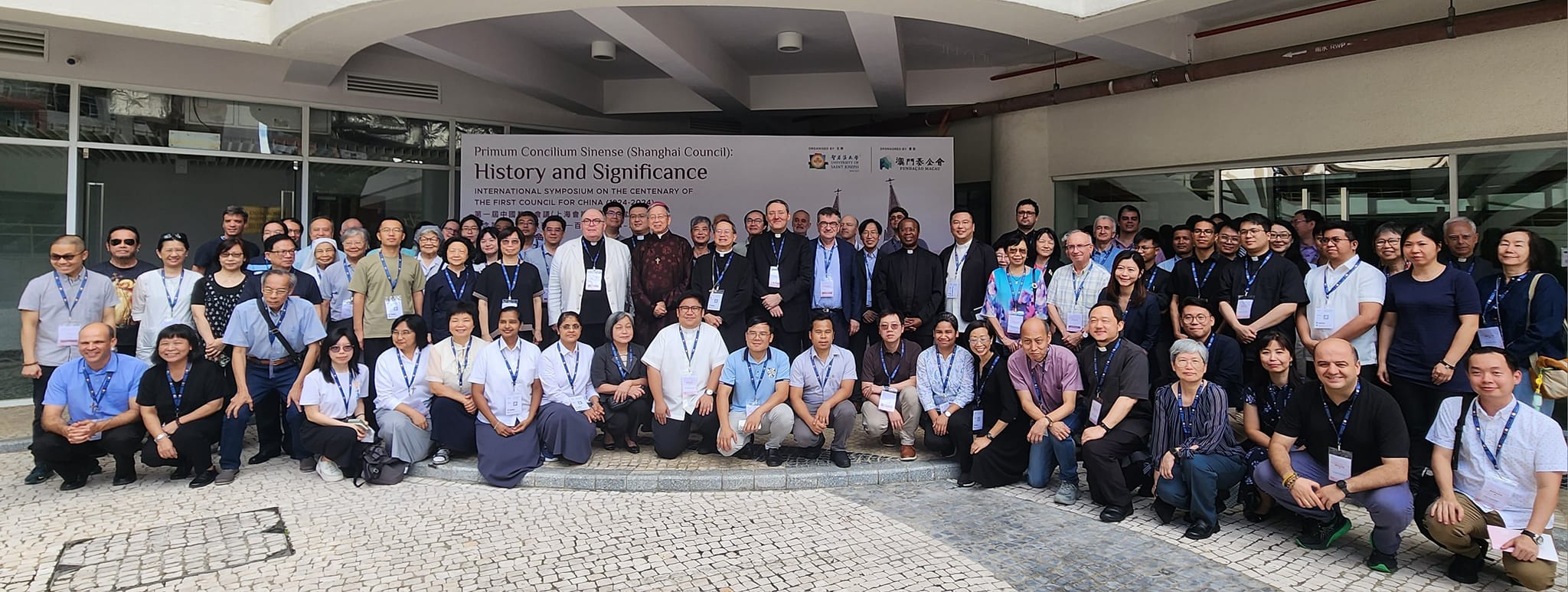Macao Symposium: Christianity and China, not a one-way adaptation
The debate at the event promoted at the University of St Joseph on the occasion of the centenary of the Council of Shanghai. Leopold Leeb: In many Chinese there is interest in the newness of the Gospel and this is the precondition for any inculturation. The decisive role of the "sensum fidelium" of Chinese Catholic families in keeping the faith alive in the years of persecution.
Macao (AsiaNews) - The encounter between the Gospel and cultures is never a one-way street: it is always made up of reciprocal exchanges. And it is a discourse that also applies to all discourses on the "sinicisation" of Christianity, in the China of yesterday as in that of today. Among the many ideas debated at the Symposium organised in Macao by the University of St Joseph 100 years after the Council of Shanghai, it is precisely this need to go beyond somewhat schematic readings of history that is the most significant trait that emerged from the three days of work that closed this afternoon with the conclusions entrusted to the scientific co-ordinators of the initiative, Fr Cyril Law and Fr Gianni Criveller.
The Chinese appointment of theanniversary celebrations - which brought together some one hundred scholars from all over Greater China (People's Republic of China, Macao, Hong Kong and Taiwan) - was a moment of frank exchange of opinions among the participants, with space also for interlocutions that allowed for fruitful debate. From this point of view, two speeches, in particular, introduced important elements to reread in a non-ideological way the context of China in which the Shanghai Council was held in 1924.
If it is true, in fact, that that event was an important prophecy on the enhancement of local Chinese culture and clergy that was not fully realised due to too much resistance, on the other hand it is profoundly wrong to claim to reread the history of missions in China in the 19th and early 20th century as a colonial phenomenon. In this sense - also in the light of today's insistence on the sinicisation of religions in China - the emphasis brought by Leopold Leeb, a Verbita scholar who teaches at Renmin University and has many years of presence in Beijing behind him, on the "Christianisation of China" as a precondition for a Church with a Chinese face, was interesting. Because it is not just a question of forms, persons or cultural categories to be valued: there is a newness of the Gospel that must be able to find a place in its entirety in the context of this great nation. On the part of many Chinese,' Leeb recalled, 'there is interest in what Christianity has that is new and different to propose. And one must also consider the path China has had to take to approach and understand Christianity. The true encounter, therefore, calls for this mutual integration.
Equally significant was the reinterpretation proposed by Prof. Rachel Zhu Xiao Hong, of Fudan University in Shanghai, who in her speech emphasised how it was the "sensum fidelium" of Catholic families (formed in the faith and brought up in the educational institutions founded by missionaries) that kept the faith alive in China beyond all the political storms of the 20th century. The scholar did so, in particular, by retracing the experience of the family of Mgr Simon Zhu Kaimin, one of the first Chinese bishops personally ordained by Pius XI in 1926, who would lead the apostolic vicariate of Haimen in the following years with great missionary dynamism. But then - by then an old man - he ended up being branded as a reactionary by the communists, dying essentially in confinement in 1960. The Zhu family itself still counts some priests over ninety years old who have shown with their lives how that 'sensum fidelium' has always remained deeply alive, even in the harshest years of persecution.
Also important at the Symposium were the in-depth studies on some specific aspects of the path that the Shanghai Council had indicated a century ago. For example, Pan Zhi Yuan, a researcher from Shanghai University, retraced the parabola of Chinese Catholic publishing in the first half of the 20th century, while Franz Gassner, from the University of St. Joseph in Macao, spoke about the idea of a Chinese Bible, which had been one of the topics the bishops had discussed in 1924.
Alongside the study sessions, the Symposium also experienced some significant public moments in this same spirit. On the evening of 27 June at the Fatima Auditorium, a large crowd of Macao Catholics attended the screening of Ageless China, a film made in 1949 by US Jesuits Bernard Hubbard and William Klement. A practically unknown document of great quality, it provided an emotional glimpse of what life was like for the Catholic community in Shanghai in the late 1940s. This afternoon, on the other hand, the work concluded with another artistic moment: the performance in the chapel of St Joseph's Seminary of the Missa Regina Pacis, which was composed by the Austrian Salesian Wilhelm Schmid on the occasion of the coronation of the image of the Virgin in the Sheshan shrine in Shanghai. These are all opportunities to rediscover a precious richness also for the journey of the Church in China today.







.png)










